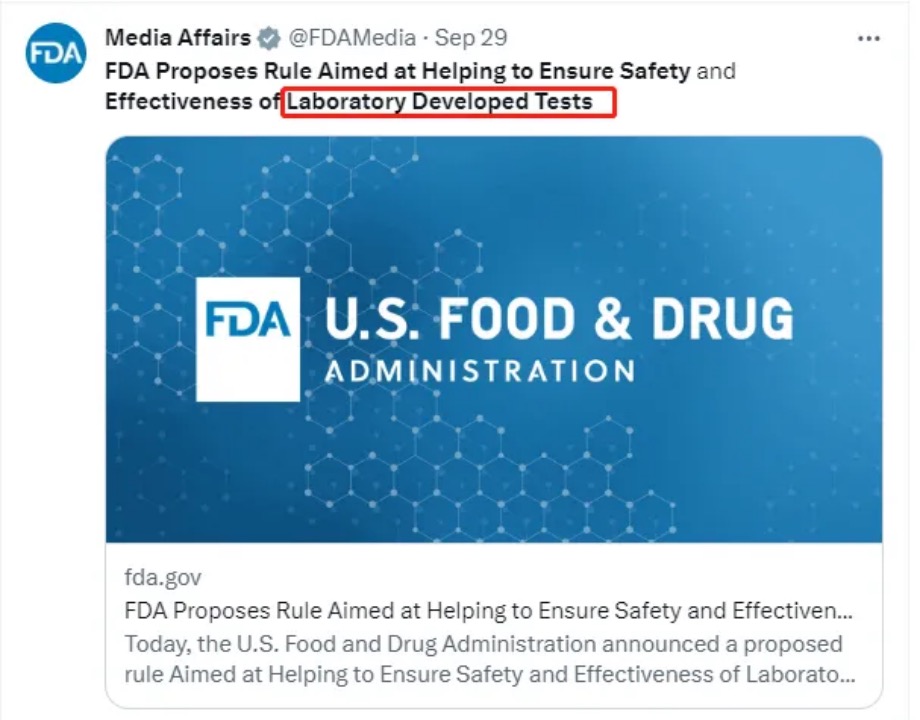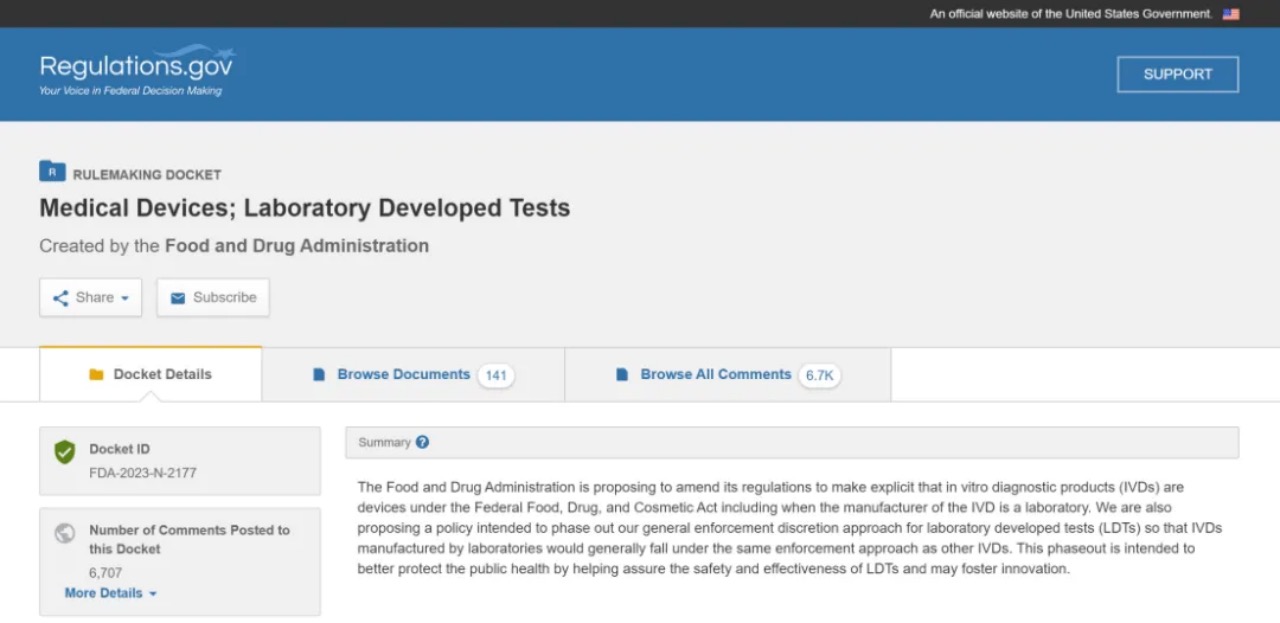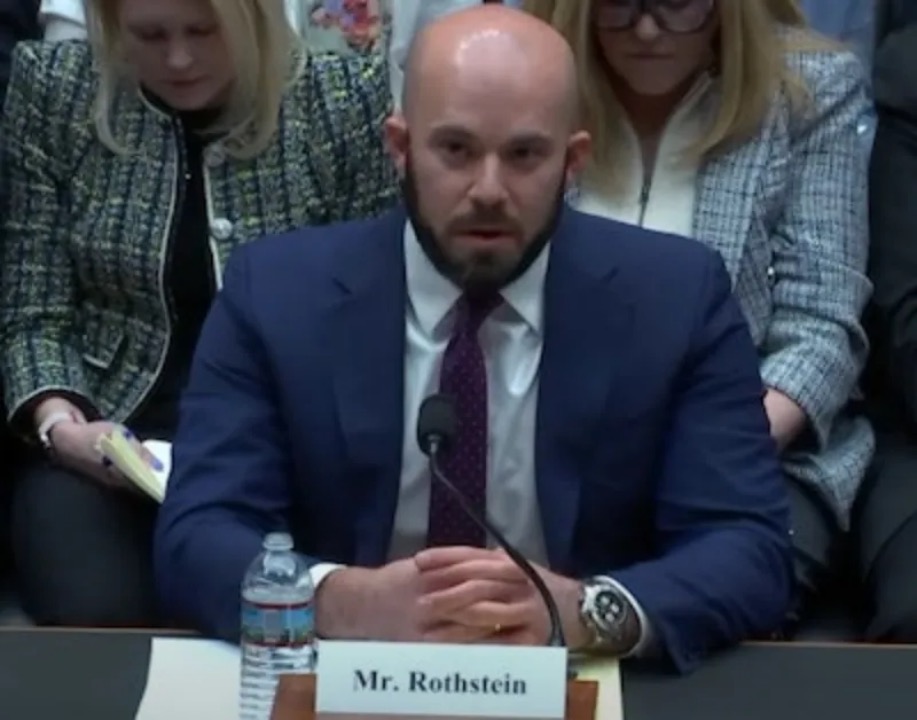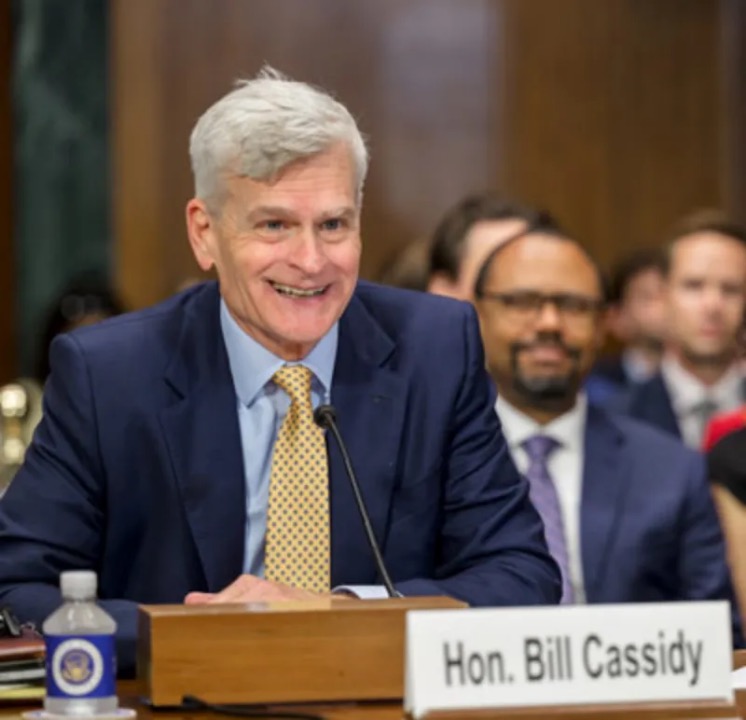Concerns Expressed in Public hearing Surrounding FDA’s Regulation of Lab Developed Tests (LDTs)

Upon its release, the draft guidance sparked a wave of opposition from the American clinical diagnostics industry. By December 31, 2023, the FDA had received about 6,700 comments, nearly all arguing against FDA regulation of LDTs.

However, the FDA remained firm, pulling CMS to stand by its side, as they issued a joint letter supporting increased oversight of lab-developed tests on Jan 21.

With the FDA expected to publish its final rule on LDT regulation in the coming weeks, Congress has shown interest in the ongoing battle for regulatory authority over LDTs. March 21, the U.S. House Energy and Commerce Committee held a public hearing on “Evaluating Approaches to Diagnostic Test Regulation & the Impact of the FDA’s Proposed Rule”
The hearing featured five industry experts representing various stakeholders in the clinical testing industry.
Here are the perspectives each expert shared at the hearing:
– Susan Van Meter, chair of ACLA, stated that FDA regulation of LDTs would significantly weaken laboratories’ ability to develop and provide innovative testing services.
– Zach Rothstein, executive director of AdvaMedDx, argued that the new rules would limit or eliminate opportunities for critical tests, increase medical costs, hinder diagnostic and medical innovation, and exceed the FDA’s statutory authority, potentially reducing patients’ access to lab testing services due to increased LDT costs.
– Donald Karcher, chair of the College of American Pathologists (CAP), mentioned that CAP could not support the FDA’s proposed rules without significant changes, and would urge Congress to pass VALID if the FDA does not make substantial amendments.
– Jeff Allen, President and CEO of Friends of Cancer Research, highlighted the increasing reliance on cancer biomarker tests and the critical role of laboratory tests in early detection and accuracy, mentioning diagnostic errors as the cause of 17% of adverse events. He also proposed VALID as a potential solution.
– Dr. Dara Aisner, Medical Director of Colorado Molecular Correlations Laboratory, voiced opposition to the FDA’s misleading proposal, emphasizing that LDTs are not medical devices, and expressed concerns about the consequences for patients and American medicine. He argued there is no substantial evidence indicating systemic harm caused by LDTs.

Interestingly, while the American clinical laboratory industry unitedly opposes FDA takeover of LDTs, opinions on the VALID Act vary. Associations like ACLA and CAP are willing to accept the VALID Act, while academic coalitions represented by Aisner remain opposed to VALID’s LDT supervision.
With the FDA determined to regulate LDTs, entities like ACLA and CAP have expressed willingness to accept the VALID Act. Senators like Bill Cassidy, potentially a key figure in any Congressional efforts around LDT regulation, have indicated through recent Requests for Information that Congress might seek solutions beyond the VALID framework.

This year’s election could also significantly impact FDA’s takeover of LDTs. Diagnostic consultant Bruce Quinn noted that if Trump wins a second term in November, his administration might end or undermine the FDA’s proposed regulations in various ways. The FDA had previously withdrawn its LDT regulations under development during the end of Barack Obama’s presidency, following Trump’s election victory.
Current FDA Commissioner Robert Califf was also appointed by President Joe Biden on February 17, 2022. He was also first nominated to be commissioner in September 2015 by President Barack Obama and he was confirmed by the U.S. Senate in February 2016, serving until January 20, 2017.
This is why the FDA has been actively pushing for LDT regulation policies over the past six months.
However, the capacity of FDAF has always been a concern from the industry.
Considering the current workload of the FDA, it has reached a point where seeking external assistance is imperative. Although the Third Party Review Program has been in place for nearly 30 years, its execution has not been particularly effective.
According to FDA statistics, the number of products cleared through third-party review for 510(k) submissions accounted for 2.6%, 2.6%, and 2.5% of the total 510(k) submissions in the fiscal years 2020, 2021, and 2022, respectively. Furthermore, the FDA currently only has seven external partners, and it was noted during a meeting that the New York State Department of Health quietly withdrew from the list of third-party review organizations earlier last year.
Focusing solely on the 510(k) pathway, let’s calculate the number of all 510(k) products in 2022 based on the Decision Date dimension; there were only 187 in total. Once the FDA takes over LDTs, including the regular volume of applications received annually, the workload will become nearly 22 times what it is currently. The FDA will need to hire a large number of professionals just to fill the gap for the 510(k) process alone, not to mention the exponentially more complex PMA and De Novo applications.
With Congress skeptical of the FDA’s proposed rule and both sides still engaged in a standoff, any factor could affect the FDA’s progress. Congress could even revoke funding support for the FDA to weaken its LDT regulatory process.
Thus, proving its authority to regulate LDTs through legislation poses a significant challenge for the FDA.